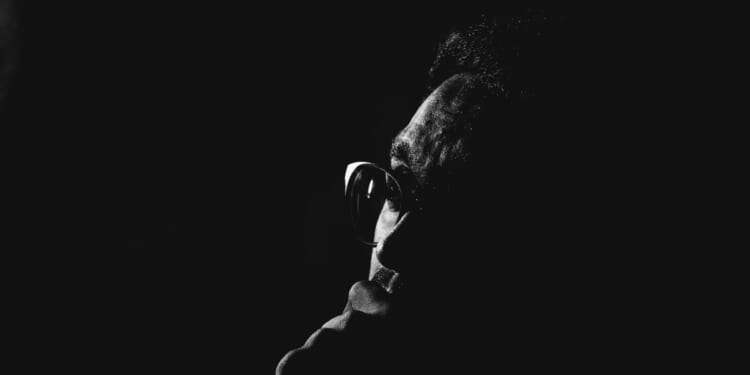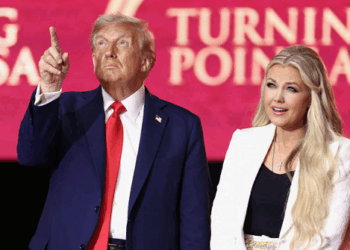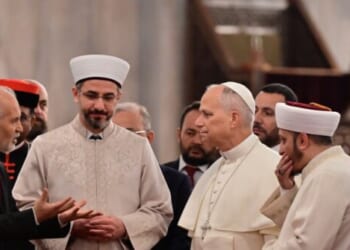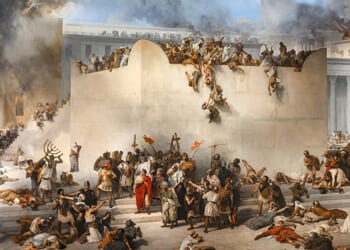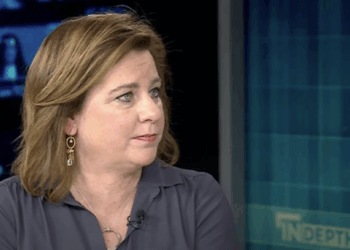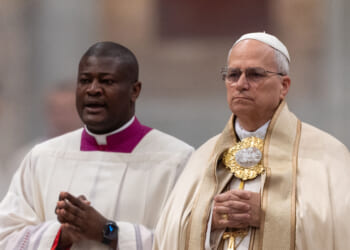In today’s “digital-globalized world,” certainty on any subject is increasingly expected. Any doubts one may have are supposedly eradicated just by “googling” or tuning in to your favorite news program or podcast. Unfortunately, today’s media and informational broadcasting can better be described as narrow-casting, given that the presenters’ biases and viewpoints are usually given as objective knowledge. Whether it’s about politics, economics, or religion, this has evolved into the presenter’s ideology determining what is acceptable, factual, and truthful—without doubt.
Ideologies—systems of ideas, assumptions, theories, and principles—offer a framework for understanding real world situations and problems. Unfortunately, this has led to growing social, political, and religious polarization because of competing—often opposing and conflicting—ideologies held by politicians and Church leaders. Not surprisingly, it has been amusingly observed that “ideology is to reason as gluttony is to fine dining”!
Are we surprised then, that a growing number of Catholics are worried, confused, and fear losing their faith in the Church and God? I propose that we ask whether the faithful are really losing their faith, or rather doubting the ideologies being presented as “the Faith.”
Pope Francis warned us about this very danger. He said in a homily on October 17, 2013: “When a Christian becomes a disciple of ideology, he or she has lost the faith; he or she is no longer a disciple of Jesus; he or she is a disciple of this attitude of thought.”
The Origin of Faith
Faith is a gift from God, “For by grace you have been saved through faith, and this is not your own doing; it is the gift of God” (Eph. 2:8-9). Televangelism, articles, and social media can be quite helpful in sharing that gift of faith through evangelization, but today, in growing numbers, we’re observing popular religious figures and Christian influencers presenting conflicting positions that confuse faith-filled people. These apparent conflicts among representatives of the Faith lead some into a disciple-like “faith” of the presenter’s ideology, and others into doubt about the presenter’s conflicts with the beliefs they hold (or even the true Faith!). What’s forgotten in this process is that faith is a “gift of God”—it does not originate from human words, personalities, or videos.
True, faith-fueled evangelization always promotes and manifests the attitudes and actions of Jesus’ unconditional love, compassion, caring, and truth.
Perhaps our religious ideologues should reflect on the insight of the Protestant theologian and scholar, Paul Tillich, when he said, “Sometimes I think it is my mission to bring faith to the faithless and doubt to the faithful.” This is to say, for those without an active life of faith, messages of evangelization ought to inspire and touch hearts, to seize within themselves the Gospel’s love and truth. Healthy ministering to the practicing faithful, on the other hand, often probes deeper—opening doors to areas of the spiritual life that need more developing, asking uncomfortable questions that might lead to more questions, and urging the believer into facing the challenges that come with carrying one’s cross daily.
The “Big Bang” . . . Again?
Persons need the “gift of God” to believe because fully understanding God is beyond human comprehension; it is not possible. Faith is faith precisely because it is not a scientifically demonstrable state of knowing undeniable proofs of God’s existence. Faith is that Divine Mystery that is the “amazing grace” of blessing from God. It exists in our doing, serving, caring for others with Jesus’ unconditional love. Our faith embraces, surmounts, and then conquers our human doubts.
Scientists tell us about evolution from the “Big Bang Theory” that happened some 13 billion years ago, giving birth to the universe. Today, we are experiencing another “Big Bang,” of sorts, one of our own making: artificial intelligence. AI now makes it possible for computers to perform “intelligent” functions originating from the input of human information. And now, this has been developed further into what is called Generative AI that creates new and original content based on the user’s input.
In Rome, on July 29, 2025, Pope Leo XIV recognized the serious implications that this new technology will have for humanity:
Today we are in a culture where the technological dimension is present in almost everything, especially as the widespread adoption of artificial intelligence will mark a new era in the lives of individuals and society as a whole.
We the faithful must understand fundamentally that, no matter how much evidence or certainty is promised, AI, like the televangelists or Christian influencers before it, cannot give us the gift of faith—only God can. AI can give us an analysis and an “intelligent” interpretation of human information about God and faith; but it can also, just as intelligently, provide definitive arguments for agnosticism and atheism.
Furthermore, unlike televangelists and Christian influencers, AI does not and cannot receive this gift of faith itself—only humans are capable of receiving it. It cannot live or act upon that “gift of God,” the way that believers do by spreading the Gospel with zeal and charity, thereby further removing us from that divine origin of this precious gift. All the more reason our pope advises that this new generative tool be used with caution.
The Presence of Doubt
As faithful Christians, whether young or in the autumn of our lives, we must not despair when doubts emerge in us, especially when precipitated by conflicting information, religious polarization in media, or AI-summarized apologetics. Let’s face it, unwavering faith is not, and never was, believing without doubts. As paradoxical as it may seem, the Mystery of Faith is made real in us when it persists despite doubts, using those doubts as motivation to know, love, and serve God more deeply.
The closer we embrace God’s unfathomable, unconditional love for us, the greater our human questions and doubts might grow. This doesn’t indicate a lessening of faith. Even the Apostles’ faith wavered (see Lk. 24:36-43), clouded by doubts in the resurrected Jesus. To this, Jesus replies, “Why are you frightened, and why do doubts arise in your hearts?” When a father asks Jesus to heal his son, Our Lord tells him, “All things can be done for the one who believes.” The father then says to Him: “I believe; help my unbelief!” (Mk. 9:24). Even when that father voices his doubts directly to the Lord, He heals his son.
Let us learn from this example of persevering faith. Indeed, in our own moments of doubt, let Jesus shine through like light breaking a clouded sky.
Jesus, live in our hearts forever!

